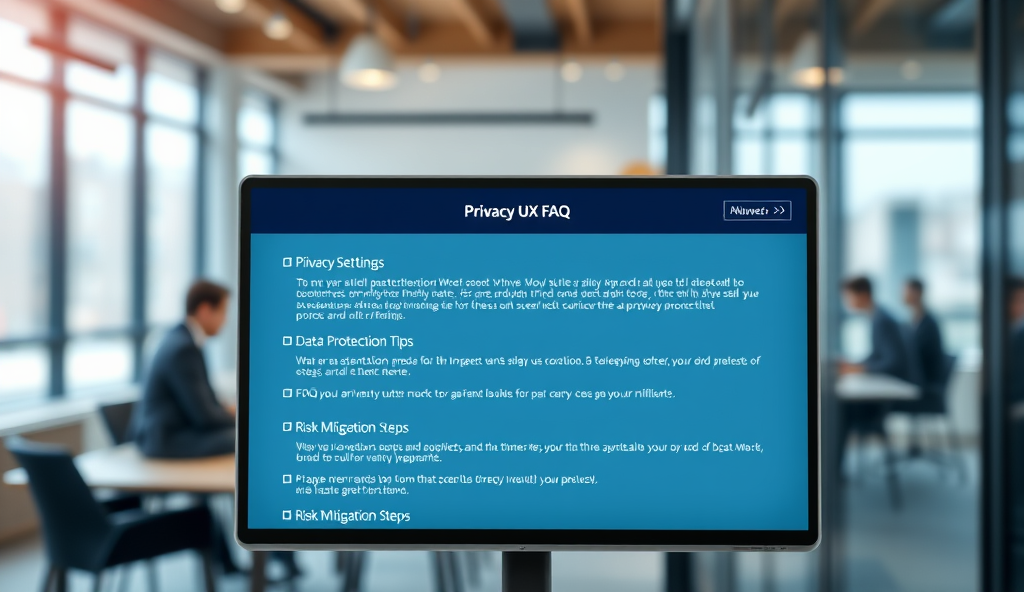Introduction to Bug Bounty Programs and Tax Implications
Bug bounty programs, which reward cybersecurity professionals for identifying vulnerabilities, have grown exponentially, with platforms like HackerOne paying over $230 million in bounties since 2012. These earnings, while lucrative, often trigger complex tax implications that vary by jurisdiction, requiring careful reporting to avoid penalties.
For example, a U.S.-based researcher earning $50,000 annually from bug bounties may face both income and self-employment taxes, while international recipients must navigate cross-border tax treaties. Understanding these nuances early helps professionals optimize their tax strategies and maintain compliance.
As we delve deeper, the next section will clarify how bug bounty earnings are classified as taxable income and the key reporting requirements across different regions. This foundational knowledge is critical for ethical hackers aiming to mitigate financial risks while maximizing their rewards.
Key Statistics

Understanding Bug Bounty Earnings as Income
Bug bounty payments are universally recognized as taxable income by tax authorities whether classified as freelance earnings prizes or other compensation.
Bug bounty payments are universally recognized as taxable income by tax authorities, whether classified as freelance earnings, prizes, or other compensation. The IRS and equivalent agencies globally treat these rewards similarly to traditional income, requiring full disclosure regardless of payment method (cryptocurrency, wire transfer, or platform credits).
For instance, a UK-based researcher receiving £30,000 in bounties must report this alongside other earnings, just as a U.S. filer would.
The taxable nature extends even to small rewards, with platforms like Bugcrowd reporting 60% of researchers earn under $10,000 annually—amounts still requiring documentation. Some jurisdictions offer de minimis exemptions, like Japan’s ¥200,000 threshold, but most mandate reporting all bounty income.
This global consistency in treatment underscores why professionals must track every payment, regardless of size or origin.
Proper income classification forms the foundation for addressing subsequent tax implications, including potential self-employment liabilities or foreign reporting obligations. We’ll explore these specific tax categories next, examining how different reward structures impact final liabilities across key regions.
Tax Classification of Bug Bounty Rewards
The IRS treats full-time ethical hackers as self-employed requiring quarterly estimated tax payments while HackerOne's 2022 data shows 45% of researchers fall into this category.
Bug bounty rewards typically fall into three tax categories: self-employment income (for independent researchers), miscellaneous income (for occasional participants), or prize winnings (for competition-based programs). The IRS treats full-time ethical hackers as self-employed, requiring quarterly estimated tax payments, while HackerOne’s 2022 data shows 45% of researchers fall into this category.
Jurisdictions like Germany and Canada often classify bounties as freelance income, triggering social security contributions, whereas the U.S. may treat platform-based rewards as 1099-MISC income.
A French researcher earning €50,000 annually would face both income tax and URSSAF social charges, unlike a U.S. counterpart dealing solely with federal and state taxes.
These classifications directly impact deductible expenses—U.S. freelancers can write off cybersecurity tools, while UK sole traders claim home office costs.
Understanding your reward structure is critical before addressing reporting obligations, which we’ll examine next for global tax authorities.
Reporting Bug Bounty Earnings to Tax Authorities
U.S. researchers must report platform payments exceeding $600 on Form 1099-MISC or 1099-NEC while self-employed hunters file Schedule C with quarterly estimated taxes.
U.S. researchers must report platform payments exceeding $600 on Form 1099-MISC or 1099-NEC, while self-employed hunters file Schedule C with quarterly estimated taxes—HackerOne’s 2022 report shows 62% of top earners use this method.
European freelancers typically declare earnings through annual tax returns, with German researchers required to submit ELSTER portal filings including VAT if registered.
Platforms like Bugcrowd provide annual earning statements, but researchers in India and Brazil must manually track rewards as most platforms don’t issue local tax documents. A Singaporean hunter earning $30,000 annually would declare under “Other Income” without GST obligations, whereas Australian participants report through myTax with PAYG installments for consistent earnings.
Proper documentation becomes crucial when claiming deductible expenses, which we’ll explore next—maintaining segregated records of platform payouts, conversion rates, and related costs simplifies global compliance. The IRS specifically scrutinizes cryptocurrency-based rewards, requiring fair market value conversion to USD at receipt date.
Deductible Expenses for Bug Bounty Hunters
Bug bounty hunters can offset taxable income by claiming legitimate business expenses including VPN subscriptions cybersecurity tools and home office costs.
Bug bounty hunters can offset taxable income by claiming legitimate business expenses, including VPN subscriptions, cybersecurity tools, and home office costs—U.S. filers using Schedule C often deduct 30-40% of earnings this way.
The IRS allows hardware deductions like test devices if used primarily for vulnerability research, but requires clear documentation linking purchases to specific bounty projects.
Platform fees (typically 10-20% of rewards) and cross-border transaction costs qualify as direct expenses, while educational resources like penetration testing courses may be amortized over time. German researchers can reclaim VAT on tools through ELSTER filings, provided they’re registered as freelancers with proper invoices.
Travel expenses for cybersecurity conferences may be deductible if attendance directly relates to bounty hunting activities—maintain detailed logs matching trips to platform participation. These strategic deductions create smoother transitions to international tax considerations, where expense treatment varies significantly by jurisdiction.
International Tax Considerations for Bug Bounty Earnings
Cross-border payments complicate tax reporting as platforms like HackerOne often withhold 15-30% for non-resident hunters unless tax treaties apply.
Cross-border payments complicate tax reporting, as platforms like HackerOne often withhold 15-30% for non-resident hunters unless tax treaties apply—U.S. researchers receiving EU bounties may claim reduced rates under double taxation agreements.
India’s Section 194R mandates 10% TDS on bug bounties exceeding ₹20,000 annually, while Singapore treats such earnings as non-taxable capital gains if not part of regular business activity.
Platforms issuing Form 1099 to U.S. hunters must also provide equivalent documentation like Germany’s Steuerbescheinigung, though Japanese freelancers face unique challenges with consumption tax on rewards over ¥1 million per year.
Always verify whether your jurisdiction classifies bounties as service income (Brazil’s Carnê-Leão) or windfalls (UAE’s zero-income-tax model), as misclassification triggers audits.
These jurisdictional variances underscore why professionals must track reward origins—a single vulnerability reported to a Dutch company could incur different tax implications than the same flaw reported to an Australian firm. Such complexities naturally lead to the next critical discussion: common filing errors that even experienced cybersecurity professionals make.
Common Tax Mistakes to Avoid for Cybersecurity Professionals
Many ethical hackers incorrectly classify international rewards as domestic income, overlooking treaty benefits like reduced U.S.-EU withholding rates—a costly error when platforms already deduct 30% for non-residents. Others fail to track jurisdictional nuances, such as India’s ₹20,000 TDS threshold or Japan’s consumption tax on rewards exceeding ¥1 million, triggering unexpected liabilities.
Seasoned professionals often neglect documenting platform-issued forms like Germany’s Steuerbescheinigung or Brazil’s Carnê-Leão, despite these being critical for claiming foreign tax credits. Some mistakenly treat bounties as windfalls in taxable jurisdictions like Canada, where CRA explicitly considers them business income if received regularly—a misstep that invites audits and penalties.
Overlooking deductible expenses—like VPN subscriptions or vulnerability research tools—is another frequent oversight, particularly among U.S. hunters who could offset 1099-reported income.
These pitfalls highlight why even skilled researchers should consider specialized guidance, bridging naturally to our final discussion on professional tax advice.
Seeking Professional Tax Advice for Bug Bounty Income
Given the complexities of international tax treaties, jurisdictional thresholds, and deductible expenses highlighted earlier, engaging a cross-border tax specialist can save ethical hackers 20-40% in liabilities through optimized filings. Firms like PwC’s Global Mobility Services or local providers like India’s ClearTax offer tailored solutions for tracking multi-platform rewards and claiming foreign tax credits efficiently.
Platform-specific nuances—such as HackerOne’s IRS 1099 reporting or Bugcrowd’s hybrid payment structures—require professionals versed in both cybersecurity income streams and regional tax codes. A 2023 ISACA survey found 68% of bug bounty hunters who used tax advisors avoided penalties, compared to 42% who self-filed without understanding consumption taxes or TDS rules.
As we transition to final considerations, remember that proactive tax planning transforms reactive compliance into strategic financial management for cybersecurity professionals. Specialized advisors bridge gaps between platform withholdings, deductible research costs, and optimal reporting structures across jurisdictions.
Conclusion: Navigating Tax Obligations for Bug Bounty Programs
Understanding the tax implications of bug bounty earnings requires careful consideration of local regulations, payment structures, and reporting requirements. As discussed earlier, cybersecurity professionals must classify income correctly—whether as self-employment earnings or miscellaneous income—to avoid penalties from tax authorities like the IRS or HMRC.
Proper record-keeping, including documentation of rewards, expenses, and platform agreements, remains critical for accurate tax filing and potential deductions. International ethical hackers should particularly note cross-border tax treaties, as seen in cases where EU researchers face different VAT treatments than US-based participants.
By implementing these strategies, professionals can mitigate risks while ensuring compliance with evolving global tax rules for bug bounty programs. The next section will explore advanced risk management techniques for optimizing post-tax earnings in this dynamic field.
Frequently Asked Questions
How should I classify bug bounty earnings if I participate occasionally versus full-time?
Occasional participants typically report as miscellaneous income (Form 1099-MISC in the US) while full-time hunters file as self-employment income—track hours using Toggl to justify classification.
What deductible expenses can I claim as a bug bounty hunter?
You can deduct cybersecurity tools (Burp Suite licenses) home office costs and platform fees—use Expensify to organize receipts for Schedule C filings.
Do I need to pay taxes on small bug bounties under $1000?
Most jurisdictions require reporting all income regardless of amount—maintain a spreadsheet with every reward including cryptocurrency conversions at receipt date.
How do tax treaties affect my international bug bounty earnings?
Treaties like US-Germany may reduce withholding rates from 30% to 15%—consult IRS Publication 901 and request platform-issued tax residency certificates.
Should I make quarterly estimated tax payments for bug bounty income?
Yes if expecting $1000+ in annual tax liability (US)—use IRS Form 1040-ES calculator and pay via EFTPS to avoid underpayment penalties.





